Specific English. Грамматические трудности перевода - [34]
A time-minded people, Joseph.» 34. After six hours’ travelling he came to La Candelaria, which lay, a long tin-roofed village, beside one of the tributaries of the Grijalva River. 35. She had a way of viewing regular-salaried employment as somehow inimical to integrity. 36. Soames could not see that for which Bosinney was waiting as he stood there drinking-in the flower-scented wind. 37. He left in a chauffeur-driven Daimler.
V. В следующих предложениях преобразуйте выделенные словосочетания в сложнопроизводные прилагательные и переведите предложения на русский язык.
1. Не hurried across the square shaded by trees. 2. His hair parted in the middle was still white and thick. 3. The President accused the Congress controlled by the Democrats of failing to meet the need for reform in the US. 4. She paused at the counter with a marble top and picked up her cigarettes and a few matches. 5. The condition of the Arab people in the territories occupied by the Israeli continues to degenerate. The measure passed by the Senate took shape two years ago. The view from there is very fine: the limitless trembling surface of River Woods, fifty unfolding miles of ploughed farmland with wind-mills. 8. His bald freckled head was big, like a dwarf’s. 9. But Doc Golightly’s proud earnest eyes and hat stained with sweat made me ashamed of such suspicions. 10. A general election is an election throughout a state. 11. This muddy street down which she had driven a thousand times during the war, along which she had fled with ducked head and legs quickened by fear, when shells burst over her during the siege, was so strange looking that she felt like crying. 12. The concrete parking area with a low ceiling was silent and deserted. 13. Behind the man wearing a yellow scarf more passengers with other problems pressed forward urgently. 14. In general the educational system financed by the state is a two-tier one of primary and secondary schools.
VI. Переведите следующие словосочетания.
presidential elections, governmental job, senatorial convention, secretarial duties, ambassadorial car, congressional election, presidential assassination, environmental impact, potential vice-presidential candidate, governmental functions, the dangers of environmental modification for military purposes, architectural job, ambassadorial appointments, senatorial approval, congressional power to impeach, presidential appointment of judges, governmental system, secretarial and clerical assistances, congressional majority.
VII. Переведите на русский язык. Обратите особое внимание на перевод выделенных атрибутивных групп.
1. Не was dark of face, swarthy as a pirate. 2. His defects were of the surface, he was generous of heart and kindly towards his fellow men. 3. He faced them all, still mild of face. 4. He knew that despite her absurdities she was frail of temperament, easily wounded. 5. Will was just the same, lank and gangling, pink of hair, mild of eye, patient as a draft animal. 6. There were handsome creatures among them, upright of carriage, with delicate features and small, exquisite hands. 7. He was slangy of speech and pleasantly caustic. 8. Himself an ugly man, insignificant of appearance, he prized very highly comeliness in others. 9. «What did he say?» asked one of the aunts, who was a little hard of hearing. 10. One or two outstanding personalities took her eye. An elderly man, very yellow of face, with a little goatee beard. 11. But to James, uneasy of conscience, her look was as good as an answer. It was an arresting face, pointed of chin, square of jaw. Nineteen years old, six feet two inches tall, long of bone and hard of muscle, they were as much alike as two bolls of cotton. 14. He could be grave of manner and charming when he chose. 15. Frail, fine-boned, so white of skin that her flaming hair seemed to have drawn all the colour from her face, she was nevertheless possessed of exuberant health and untiring energy.
VIII. Переведите на русский язык, обращая особое внимание на перевод атрибутивных групп с of.
1. Perhaps he learned to appreciate what a jewel of a wife he has? 2. Up there, that son-of-a-bitch of a captain is probably crying into his sombrero. 3. Meanwhile, he wished the old cluck of a chairman, Zanetta, would get the hell off his feet so that he, Freemantle, could take over. 4. And then I saw a fellow come in I knew. Big bully of a chap. 5. We had a hell of a fight. 6. I can’t tell you how moving it was to see that great bulk of a man uplifted by an emotion so pure and so beautiful. 7. I made a hell of an effort and slipped away. 8. Her mask of a face scowled. 9. She was contemplating an important change in her life and had no interest to spare for these animals oi tourists!
IX. Переделайте следующие предложения так, чтобы употребить атрибутивную группу с of.
1. The driver, a poor bastard, could freeze out there. 2. What was there to fear in this ruined world but hunger and cold and the loss of home? (wreck) 3. He thought it a very funny joke.
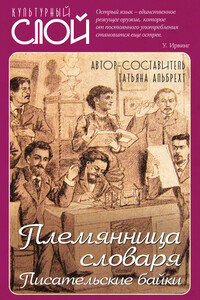
Предлагаемая вашему вниманию книга – сборник историй, шуток, анекдотов, авторами и героями которых стали знаменитые писатели и поэты от древних времен до наших дней. Составители не претендуют, что собрали все истории. Это решительно невозможно – их больше, чем бумаги, на которой их можно было бы издать. Не смеем мы утверждать и то, что все, что собрано здесь – правда или произошло именно так, как об этом рассказано. Многие истории и анекдоты «с бородой» читатель наверняка слышал или читал в других вариациях и даже с другими героями.
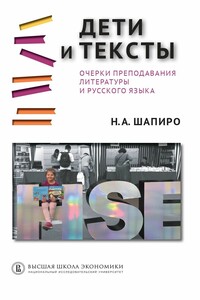
Книга посвящена изучению словесности в школе и основана на личном педагогическом опыте автора. В ней представлены наблюдения и размышления о том, как дети читают стихи и прозу, конкретные методические разработки, рассказы о реальных уроках и о том, как можно заниматься с детьми литературой во внеурочное время. Один раздел посвящен тому, как учить школьников создавать собственные тексты. Издание адресовано прежде всего учителям русского языка и литературы и студентам педагогических вузов, но может быть интересно также родителям школьников и всем любителям словесности. В формате PDF A4 сохранен издательский макет.
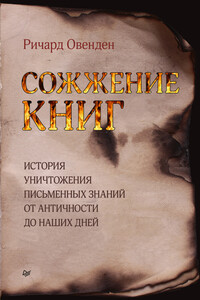
На протяжении всей своей истории люди не только создавали книги, но и уничтожали их. Полная история уничтожения письменных знаний от Античности до наших дней – в глубоком исследовании британского литературоведа и библиотекаря Ричарда Овендена.
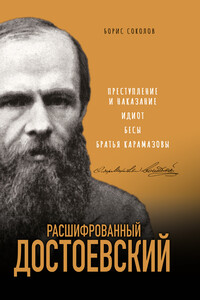
Книга известного литературоведа, доктора филологических наук Бориса Соколова раскрывает тайны четырех самых великих романов Федора Достоевского – «Преступление и наказание», «Идиот», «Бесы» и «Братья Карамазовы». По всем этим книгам не раз снимались художественные фильмы и сериалы, многие из которых вошли в сокровищницу мирового киноискусства, они с успехом инсценировались во многих театрах мира. Каково было истинное происхождение рода Достоевских? Каким был путь Достоевского к Богу и как это отразилось в его романах? Как личные душевные переживания писателя отразились в его произведениях? Кто был прототипами революционных «бесов»? Что роднит Николая Ставрогина с былинным богатырем? Каким образом повлиял на Достоевского скандально известный маркиз де Сад? Какая поэма послужила источником знаменитой легенды о «Великом инквизиторе»? Какой должна была быть судьба героев «Братьев Карамазовых» в так и ненаписанном Федором Михайловичем втором томе романа? На эти и другие вопросы о жизни и творчестве Достоевского читатель найдет ответы в этой книге.
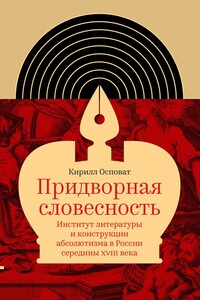
Институт литературы в России начал складываться в царствование Елизаветы Петровны (1741–1761). Его становление было тесно связано с практиками придворного патронажа – расцвет словесности считался важным признаком процветающего монархического государства. Развивая работы литературоведов, изучавших связи русской словесности XVIII века и государственности, К. Осповат ставит теоретический вопрос о взаимодействии между поэтикой и политикой, между литературной формой, писательской деятельностью и абсолютистской моделью общества.

В книге рассказывается история главного героя, который сталкивается с различными проблемами и препятствиями на протяжении всего своего путешествия. По пути он встречает множество второстепенных персонажей, которые играют важные роли в истории. Благодаря опыту главного героя книга исследует такие темы, как любовь, потеря, надежда и стойкость. По мере того, как главный герой преодолевает свои трудности, он усваивает ценные уроки жизни и растет как личность.